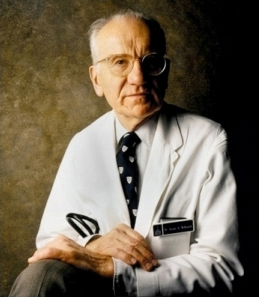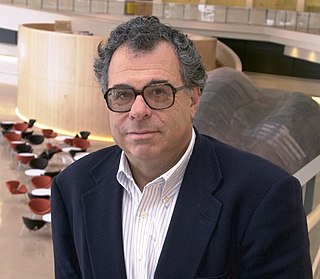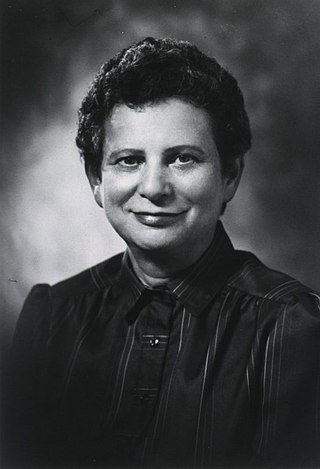Related Research Articles

Eugenics is a set of beliefs and practices that aim to improve the genetic quality of a human population. Historically, eugenicists have attempted to alter human gene pools by excluding people and groups judged to be inferior or promoting those judged to be superior. In recent years, the term has seen a revival in bioethical discussions on the usage of new technologies such as CRISPR and genetic screening, with heated debate around whether these technologies should be considered eugenics or not.

Theodosius Grigorievich Dobzhansky was an American geneticist and evolutionary biologist. He was a central figure in the field of evolutionary biology for his work in shaping the modern synthesis. Born in the Russian Empire, Dobzhansky emigrated to the United States in 1927, aged 27.

Hermann Joseph Muller was an American geneticist who was awarded the 1946 Nobel Prize in Physiology or Medicine, "for the discovery that mutations can be induced by X-rays". Muller warned of long-term dangers of radioactive fallout from nuclear war and nuclear testing, which resulted in greater public scrutiny of these practices.
The Human Genome Organisation (HUGO) is a non-profit organization founded in 1988. HUGO represents an international coordinating scientific body in response to initiatives such as the Human Genome Project. HUGO has four active committees, including the HUGO Gene Nomenclature Committee (HGNC), and the HUGO Committee on Ethics, Law and Society (CELS).

Victor Almon McKusick was an American internist and medical geneticist, and Professor of Medicine at the Johns Hopkins Hospital, Baltimore. He was a proponent of the mapping of the human genome due to its use for studying congenital diseases. He is well known for his studies of the Amish. He was the original author and, until his death, remained chief editor of Mendelian Inheritance in Man (MIM) and its online counterpart Online Mendelian Inheritance in Man (OMIM). He is widely known as the "father of medical genetics".

Sir Walter Fred Bodmer is a German-born British human geneticist.
The Adelphi Genetics Forum is a non-profit learned society based in the United Kingdom. Its aims are "to promote the public understanding of human heredity and to facilitate informed debate about the ethical issues raised by advances in reproductive technology."

David Botstein is an American biologist who is as the chief scientific officer of Calico. He was the director of the Lewis-Sigler Institute for Integrative Genomics at Princeton University from 2003 to 2013, where he remains an Anthony B. Evnin Professor of Genomics.
Clarence Paul Oliver, known to his friends as "Pete", was an American geneticist. Born in Dexter, Missouri, he attended college at University of Texas receiving a BA in 1925. He continued his studies at University of Texas completing a PhD in the laboratory of Hermann Joseph Muller in 1931. From 1932 to 1946 he was a member of the faculty of University of Minnesota where future nobelist Edward B. Lewis worked in his lab as an undergraduate. From 1946 to his retirement in 1971, he was a faculty member at University of Texas, where he studied human genetics and pseudoallelism.
Charles Thomas Caskey, also known as C. Thomas Caskey, was an American internist who has been a medical Geneticist and biomedical researcher and entrepreneur. He was a Professor of Molecular and Human Genetics at Baylor College of Medicine, and served as editor of the Annual Review of Medicine from 2001 to 2019. He was a member of the editorial boards of the Proceedings of the National Academy of Sciences, Science, the Encyclopedia of Molecular Medicine and numerous other medical and scientific journals.

Elizabeth Fondal Neufeld is a French-American geneticist whose research has focused on the genetic basis of metabolic disease in humans.

The Genetics Society is a British learned society. It was founded by William Bateson and Edith Rebecca Saunders in 1919 and celebrated its centenary year in 2019. It is therefore one of the oldest learned societies devoted to genetics. Its membership of over 2000 consists of most of the UK's active professional geneticists, including researchers, teachers and students. Industry and publishing are also represented in the membership.
The American Society of Human Genetics (ASHG), founded in 1948, is a professional membership organization for specialists in human genetics. As of 2009, the organization had approximately 8,000 members. The society's members include researchers, academicians, clinicians, laboratory practice professionals, genetic counselors, nurses, and others who have a special interest in the field of human genetics.
The Genetics Society of America (GSA) is a scholarly membership society of more than 5,500 genetics researchers and educators, established in 1931. The Society was formed from the reorganization of the Joint Genetics Sections of the American Society of Zoologists and the Botanical Society of America.

Manchanahalli Rangaswamy Satyanarayana Rao was an Indian scientist. He was awarded the fourth-highest civilian award, the Padma Shri, for Science and Engineering in 2010. From 2003 to 2013 he was president of Jawaharlal Nehru Centre for Advanced Scientific Research (JNCASR) in Bangalore, India.

The Behavior Genetics Association (BGA) is a learned society established in 1970 and which promotes research into the connections between heredity and behavior, both human and animal. Its members support education and training in behavior genetics; and publish Behavior Genetics, a journal on the topic.

Stylianos E. Antonarakis is a Greece-born human geneticist.
Barbara Hyde Bowman was an American biologist, geneticist, and educator who was known for her research in human blood proteins. Her work characterized variants of globins, the family of proteins responsible for transporting blood in oxygen, and in 1984, Oliver Smithies and she showed that variations in haptoglobins were due to polymorphisms in the HP gene.

The African Society of Human Genetics (AfSHG) is a learned society and professional membership organization focused on the study of human genetics and genomics in Africans, and open to researchers who are interested in the subject. It has played a role in founding several national genetics societies, and is affiliated with the societies of Cameroon, the Democratic Republic of the Congo, Mali, Egypt, Rwanda, Senegal, South Africa, and Tanzania.

Grant Robert Sutherland is a retired Australian human geneticist and celebrated cytogeneticist. He was the Director, Department of Cytogenetics and Molecular Genetics, Adelaide Women's and Children's Hospital for 27 years (1975-2002), then became the Foundation Research Fellow there until 2007. He is an Emeritus Professor in the Departments of Paediatrics and Genetics at the University of Adelaide.
References
- "ASHG Presidents, 1949-2020". American Society of Human Genetics. Retrieved 2020-03-06.